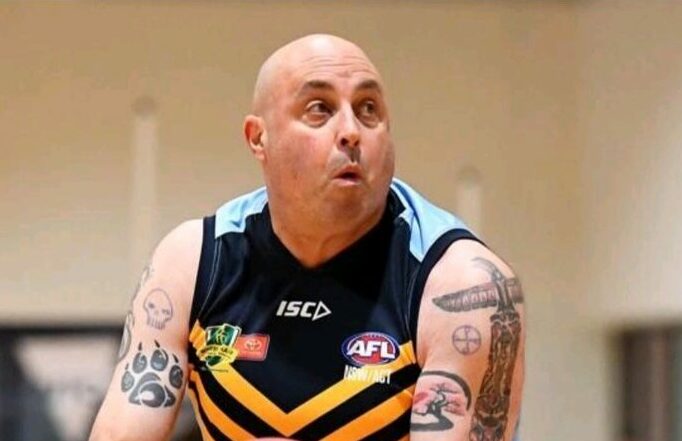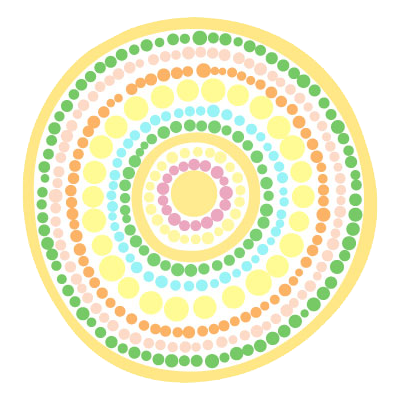When Adam Smark had his leg amputated above the knee four years ago, he was not ready to give up on a lifetime of sport and
wheelchair AFL has given him an outlet to spark his competitive fire.
A Tourism Navigator with The Disability Trust, he recently represented NSW/ACT in the sport at the National Championships at Melbourne’s Parkville Sporting Complex.
Adam had grown up in Melbourne playing Australian Rules and had participated in AFL in the United States and at Masters competitions before his leg surgery.
“When I saw there was a wheelchair version, I thought I want to have a go at this.”
A training program was launched at Shellharbour earlier this year and Adam thought “awesome, I’ll be there with bells on but nobody else turned up”.
After training by himself for a few weeks, the program was switched to Bankstown where more players came on board.
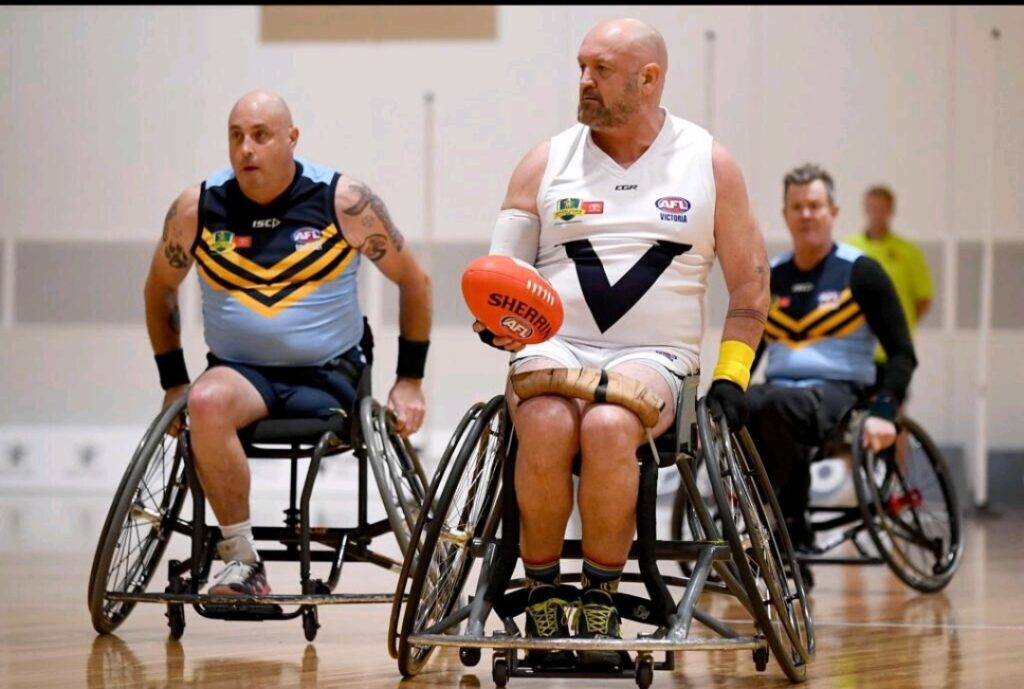
Despite the extra travel burden of the two-hour round trip to Sydney for the weekly training sessions, Adam stuck with it and his persistence paid off when he was chosen in the state squad.
The combination of previously playing wheelchair basketball and the skills he had acquired playing Aussie Rules helped make the transition to his new sport a smooth process.
“It’s a sport that’s in the growth phase. We’re trying to raise awareness and get a league going so there’s more exposure and people will come and try. NSW is the only state that doesn’t have one,” he explained.
Efforts are being made by Wheelchair Sports NSW to engage with the Sydney Swans and GWS Giants to help get a league up and running. State and AFL level clubs in other states are actively engaged in the development of leagues and promoting the sport, there is hope that NSW/ACT can have a similar association.
As far as the rules are concerned, Wheelchair AFL is played on a basketball court with five players on each side with the four usual AFL posts, although with a much narrower gap of 1.5 metres between each one.
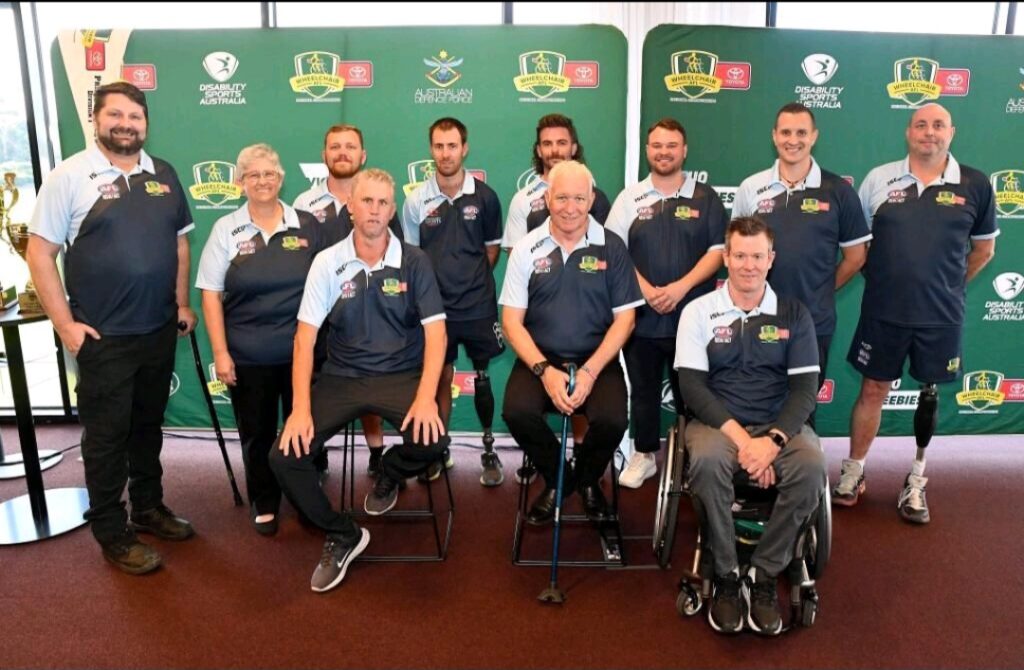
“As you can imagine when you’re in a wheelchair it’s very difficult to kick,” Adam explained with a laugh. “You handpass the ball to kick, including when you’re going for goal, and if someone catches the handpass, that’s counts as a mark and a free possession.
“You can throw the ball underarm like in rugby, but not overarm like gridiron, and that is the wheelchair version of a handpass.
“The scoring is the same as regular AFL but the players can’t go everywhere on the court. It’s a bit like netball where the two defenders and the two forwards can only cover two-thirds of the court and then there’s a centre who can go anywhere up and down the court.
“It does get pretty crowded because everyone’s allowed in the middle and if the ball goes there then there can be lots of contact.
“There can be a few upturned players but most of the damage is done to the chairs. It’s an awesome sport, it flows very well.
“It does make a difference if you’re tall or short on the football field, but when you’re in a wheelchair, it’s a very levelling element and it comes down to your skill in controlling the chair more than anything.”
At the National Championships, nine teams representing each state and territory as well as a Returned Services League side competed in a lightning round of shortened matches to determine the distribution of teams across two divisions.
They played divisional rounds of 10-minute halves leading into a grand final with 10-minute quarters.
NSW/ACT, in their second trip to the nationals, qualified for the Division Two grand final but went down 82-49 to Tasmania.
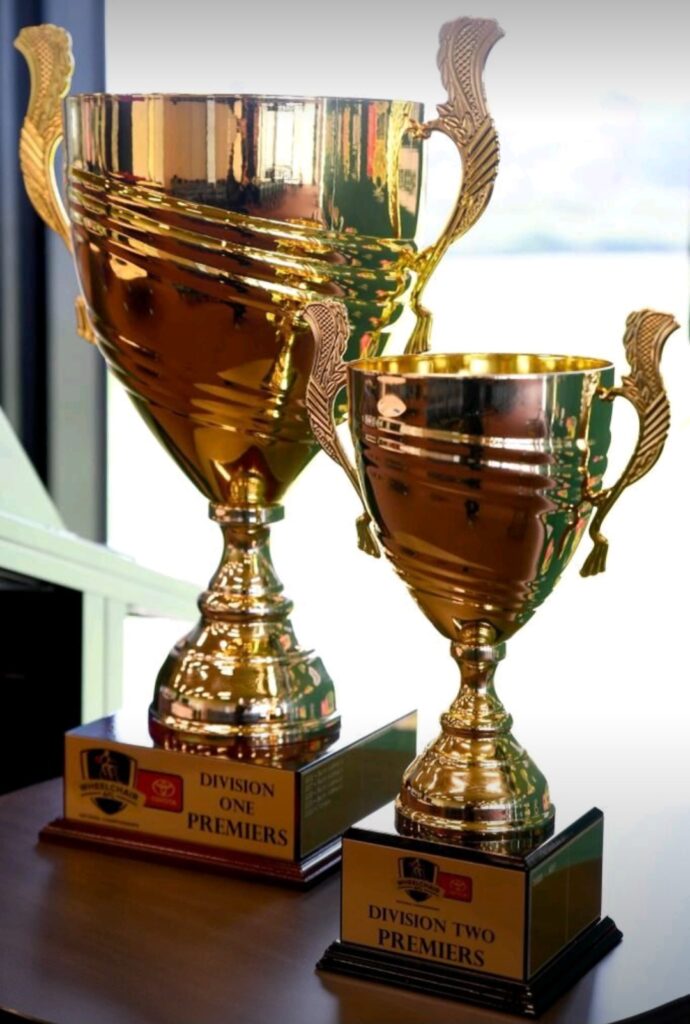
Adam got into wheelchair sports after he had a rare bacterial infection, necrotising fasciitis, in his left leg and amputation was required “in order to save my life, basically”.
“Once the operation was done and I was healing, straight away I wanted to get back into sport,” the 52-year-old recalled.
“My first NDIS plan included a wheelchair basketball chair and I also play amputee golf. I’m still very active and now I’ve got wheelchair AFL on top of the rest of it.
“It helps to be active. I try to be anyway.”

